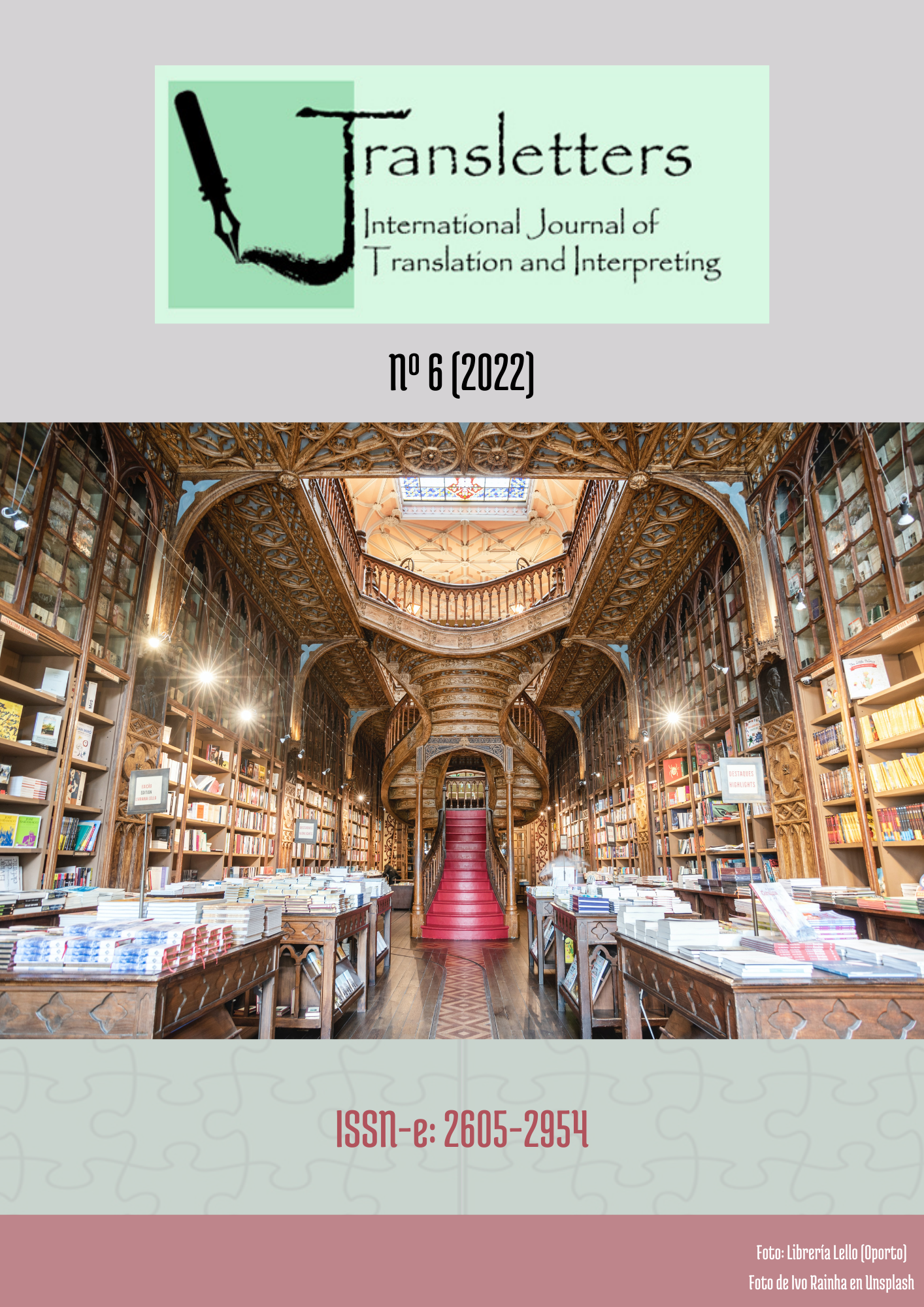Translating Motherhood in line with Xela Arias Making Women's Experiences and Minority Languages Visible through Translation
Main Article Content
Abstract
The departure point of this study is the parallelism between the situation of absence, oppression and invisibility that affects to texts written in Galician language by women. These texts should be considered as literary products marked by a double otherness, since they are texts written in a minority language and they are also written by women. Translation is expected to be a key element to provide the texts with presence and visibility to make the experiences of the authors in minority languages visible. For this reason, this study aims at translating and analysing a set of excerpts from the collection of poems titled Diarío a Diario by Xela Arias. The author is a Galician philologist, translator and poet who explores motherhood outside the prevailing ideals in post-Francoist Spain.
Downloads
Article Details

This work is licensed under a Creative Commons Attribution-NonCommercial-ShareAlike 4.0 International License.
Suggested policy for journals that offer open access
Authors who publish with this journal agree to the following terms:
1. Authors retain copyright and grant the journal the right of first publication with the work simultaneously licensed under a Creative Commons Attribution License, which allows others to share the work with an acknowledgement of authorship of the work and initial publication in this journal.
2. Authors may enter into additional contractual arrangements for non-exclusive distribution of the published version of the paper in the journal (e.g., submission to an institutional repository), with an acknowledgement of its initial publication in this journal.
3. Authors are allowed and encouraged to publish their work prior to the final version published in this journal once accepted (e.g., in institutional repositories or on their website), as it can lead to productive exchanges, as well as earlier and higher citation of the published work (see The Open Access Effect).

